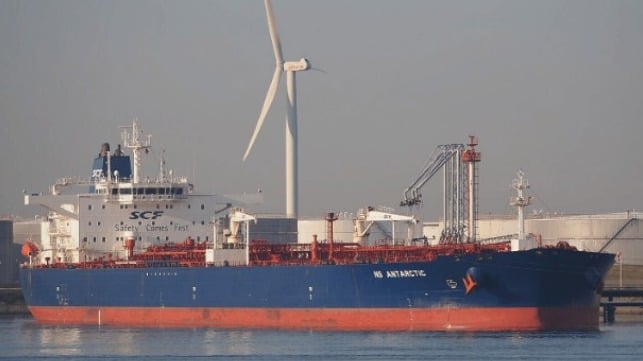Sanctions Regimes Have Been Tightened, But Enforcement Remains Patchy

Since the beginning of the year, sanctions directed against Russia for prosecuting its invasion of Ukraine have been tightened significantly, and in particular, dark fleet tankers - serving both Russian and Iranian oil exports - have been targeted. For the shipping and logistics industry worldwide, sanctions impose a burdensome overhead on commercial activity. Rules need to be understood, and their application to day-to-day trading considered. Sanctions breaking also presents particular challenges for maintaining fair market competition.
In January, Lloyds List estimated that the three primary sanctions-enforcing sovereign bodies - the United States, the United Kingdom and the European Union, had listed 35% of an estimated 669 dark fleet tankers shipping Russian and Iranian oil. These numbers include 143 tankers sanctioned by the US Treasury Office of Foreign Assets Control (OFAC) on January 10. On May 9, the UK added a further 99 tankers to its sanctions list, with Prime Minister Starmer then claiming the UK had listed more dark fleet tankers than anybody else. The EU’s 18th Package of sanctions recently announced targeting Russia added 105 tankers to their list dark fleet ship listings. Canada has also joined the sanctions activity. The UK’s National Crime Agency estimated last week that 400 dark fleet tankers have now been sanctioned, and issued a warning in particular to insurance and finance companies providing cover for dark fleet shipments.
Assessing the effectiveness of sanctions regimes is difficult. Legitimate firms keen to comply with the rules will self-enforce. Those contemplating deliberately contravening sanctions have to assess the risk of getting caught - and the penalties imposed if they are caught. So the number of enforcement penalties imposed by any one jurisdiction is an indication of sanctions regime effectiveness, but not the whole answer.
OFAC in the United States imposed 12 civil penalties in 2024, issuing a total of $48.8 million in fines. So far in 2025, OFAC has issued seven fines totaling $235.88 million, indicating a major ramp-up in enforcement activity.
In the UK, the sanctions regime is the responsibility of the Office of Financial Sanctions Implementation (OFSI), a Treasury organization with 140 full-time staff divided between Engage, Enhance and Enforcement functions. OFSI investigated 396 cases in 2023-24 and issued 18 warning letters. But only a single company was fined, raising $20,000 for cash-strapped government finances. Dr Helen Taylor, of the Spotlight on Corruption pressure group, described the UK sanctions regime as ‘all bark and no bite’.
In Europe, the Commission is responsible for an EU-wide sanctions system and maintains a single sanction database across the 27 countries of the European Union. It also encourages nations with whom it has relationships to conform with the system. But inside the relevant directorates within the EU Commission, there is a recognition that while the rules made are ambitious, the system often fails because enforcement remains a responsibility of individual states - some of whom do not buy into the Brussels targeting, and about half of whom have not even made sanctions evasion a criminal offence. In 2024, the Netherlands, Latvia, Hungary, and Germany are known to have successfully prosecuted sanctions evaders, but an overall picture of EU sanctions enforcement is difficult to gauge.
Enforcement clearly remains an issue, when dark fleet tankers make port calls, unload and enjoy shipping services even in nations which enjoy close relations with those imposing sanctions. Tighter enforcement will necessarily involve imposing penalties and taking a tougher line with some of these friendly nations. This will often present challenges; diplomats are usually happier to engage rather than confront, and often robust action can threaten free trade and tariff negotations - and sometimes even jeopardize basing rights that the US and UK enjoy in the country ignoring the sanctions.
The opinions expressed herein are the author's and not necessarily those of The Maritime Executive.
